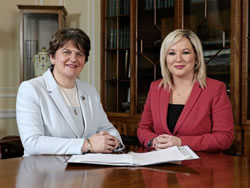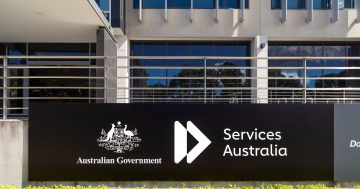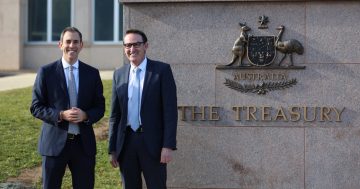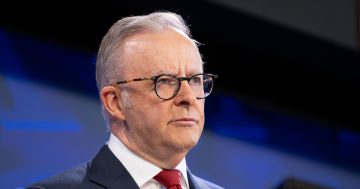 The First and Deputy First Ministers in the Northern Ireland Government have abandoned a process whereby they interview candidates and agree on the appointment of the head of the Province’s Public Service.
The First and Deputy First Ministers in the Northern Ireland Government have abandoned a process whereby they interview candidates and agree on the appointment of the head of the Province’s Public Service.
It comes after Arlene Foster (pictured left) and Michelle O’Neill (pictured right) failed to agree on any of the three candidates they interviewed last September, leaving the Public Service leaderless until they agreed on a temporary replacement in former utility regulator, Jenny Pyper.
Instead, there will now be a ‘structured conversation’ with the Ministers for candidates who pass the first interview stage.
The final interviews is then be conducted by a panel on which the Ministers will not sit.
The reasons why Mrs Foster, who heads the Democratic Unionist Party and Ms O’Neill (Sinn Fein) could not agree on a candidate has never been publicly explained.
That politicisation of the process and the fact the Ministers had failed in nine months to make a decision, created significant disquiet within the Northern Ireland Public Service.
That led to a review of the role of head of the Public Service resulting in a decision to split what, until now, have been the responsibilities of the position.
There will now be an additional Permanent Secretary post created with the title of Second Permanent Secretary in Mrs Foster and Ms O’Neill’s Department, the Executive Office.
The individual will be responsible for running the Department.
This means the head of the Public Service, when finally selected, will largely focus on running the remainder of the bureaucracy, alongside acting as Chief Public Service Adviser to the First and Deputy First Ministers, and acting as Secretary to the Executive.
Mrs Foster and Ms O’Neill had already raised the salary for the post to a possible £188,272 ($A339,578) a year.
However, they have now opened the door to increasing the salary even further — despite having now reduced the workload of the role.
A key part of the role will be the reform of an institution whose credibility has been devastated by revelations surrounding the collapse of the Renewable Heat Incentive scheme in 2017.
Belfast, 31 March 2021











